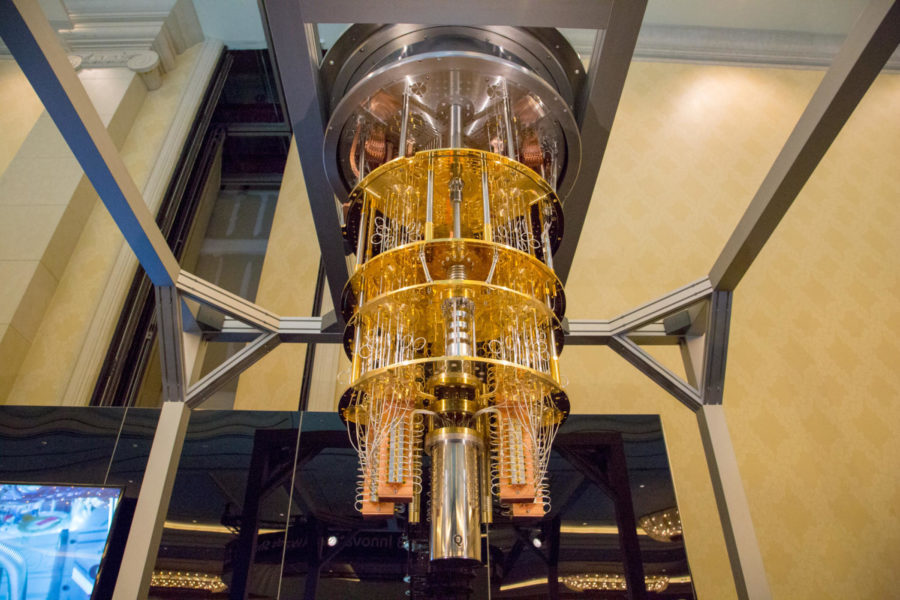Quantum computing class brings new field to campus
A radiation wall that holds a quantum computer. The computers must be kept at low temperatures.
December 19, 2018
Akins High School prides itself on trying innovative things to offer new career opportunities to its students, and it will keep this tradition going next school year as two teachers pilot a dual credit quantum computing course.
Akins will be the first high school in the country to offer dual credit quantum computing. A professor from the University of Texas (UT) at Austin contacted Akins in order to set up this class. Christina Berry, the STEM Academy Coordinator, said that the professor chose Akins for this class because of its demographics and programs.
“He went out on his own and got grants to make this happen on his end,” Berry said. “He totally came to us with this idea.”
is class won’t be considered a UT OnRamps course, but it will function quite similarly. Berry said that the goal of this course is to get high schoolers exposed to this field, which is projected to grow in the next 10 years.
“There are multiple pathways at UT you can take along with quantum computing,” Berry said. “ They have what they call the Applied Research Lab which is completely dedicated to quantum computing.”
Quantum computers have the capacity to solve more complex problems than traditional computers. Classical computers use data that is binary, meaning that its capabilities are limited. Quantum computing uses data comprised of quantum bits, called qubits, which are not binary like regular bits. It makes them more powerful. While classical data can be copied, quantum data from qubits cannot be.
“When you deal with computing, it is very binary, like ones and zeros,” chemistry teacher Derrick Tucker said. “With respect to quantum mechanics, it’s as if you’re making use of all the space between the one and the zero.”
This solves the storage problem with classical computers. Because quantum mechanics is used to maximizing storage, these computers can compute very large numbers that would be impossible for a regular computer to use.
“Quantum computing is sort of the next greatest huge technology,” Berry said. “It is even hard to wrap your mind around because it is so big and different than what we’re used to.”
Tucker will be teaching this class in the fall. He was sent to a training seminar at the University of Waterloo in Canada to help him better understand the material so he can help students with the coursework. The UT professor is currently working with his students to replicate a quantum computer. After the basics of the class are taught, the students will be able to experiment with quantum computing.
The only prerequisite for next year’s quantum computing class is algebra II. Tucker said that the course will cover the basic ideas of quantum mechanics and its relation to the world, and then delve into topics such as light polarization and vector notation.
“You would be surprised at how well grounded your understanding of quantum mechanics can be with some high school level math and a couple of rules you consistently apply across systems,” Tucker said.
Berry said that she recommends that students interested in STEM subjects take the course next year. She said that the course generates good opportunities.
“It has a lot of really good outcomes or possibilities,” Berry said. “ it’s why everybody’s kind of excited about it right now.
Junior Noah Perez said that he thinks the class has good potential. He said he thinks it could change the future substantially.
“It is probably in my best interest to take it even if I don’t want to pursue it in the future,” Perez said. “It would be something to try out.”
Tucker said that the class is difficult but worthwhile. He said that he encourages students to try the class.
“Nothing worth doing is easy,” Tucker said. “It’s engaging in that challenge that causes you to grow.”






